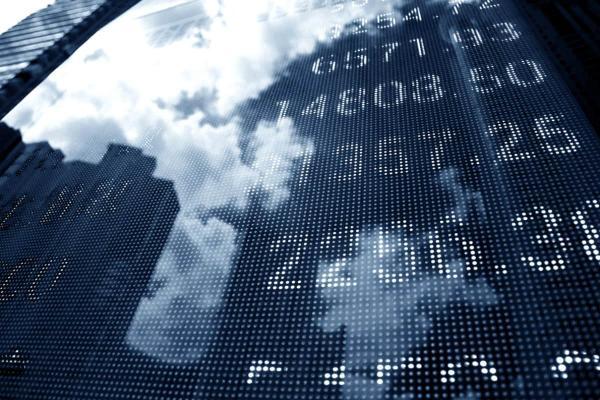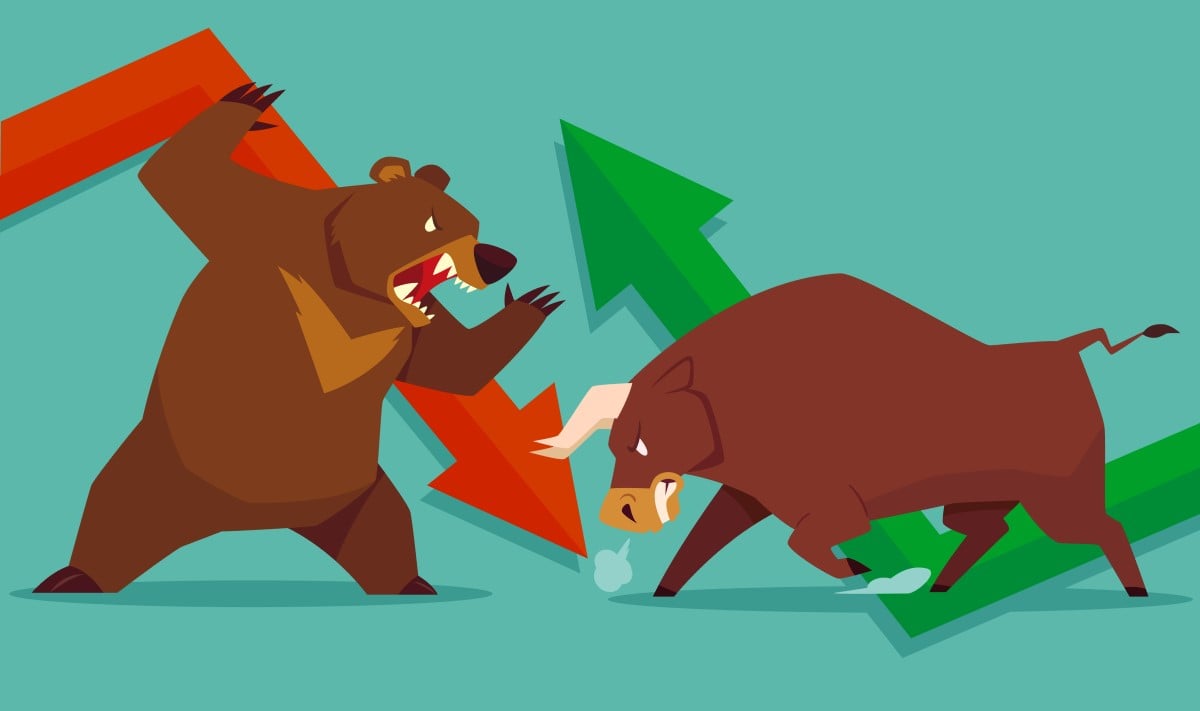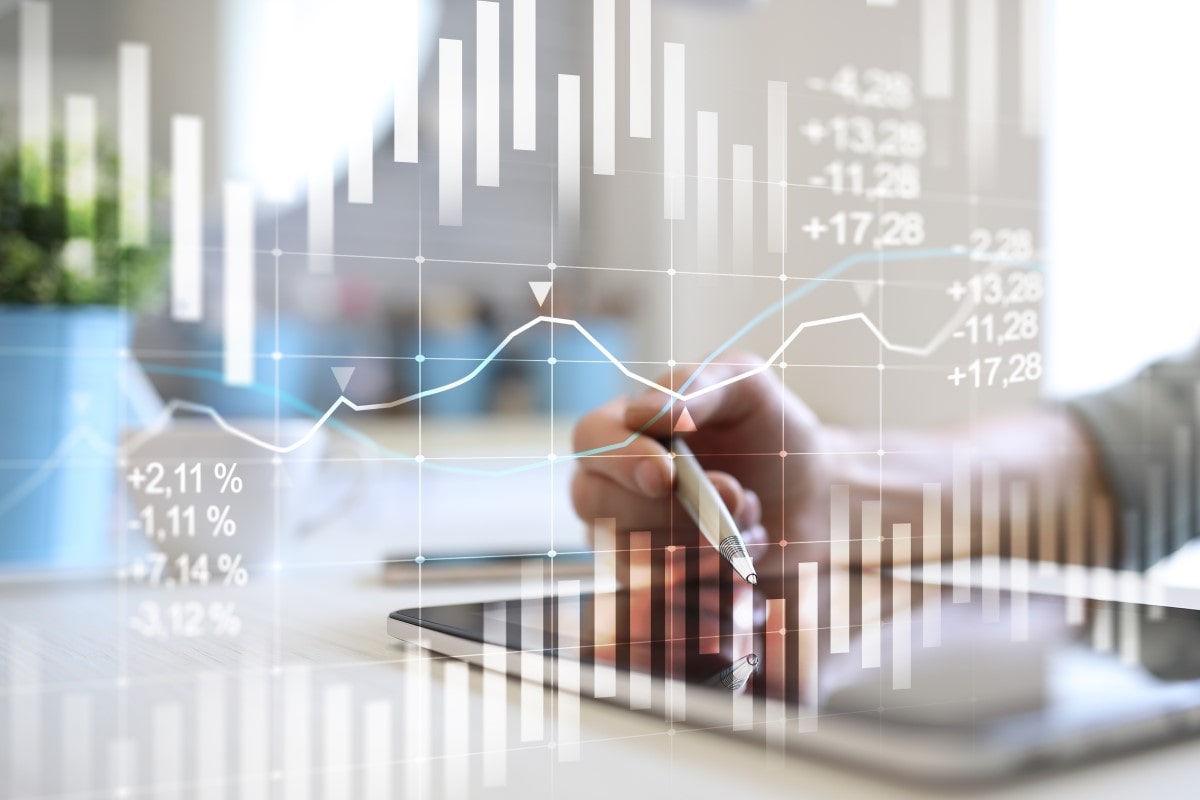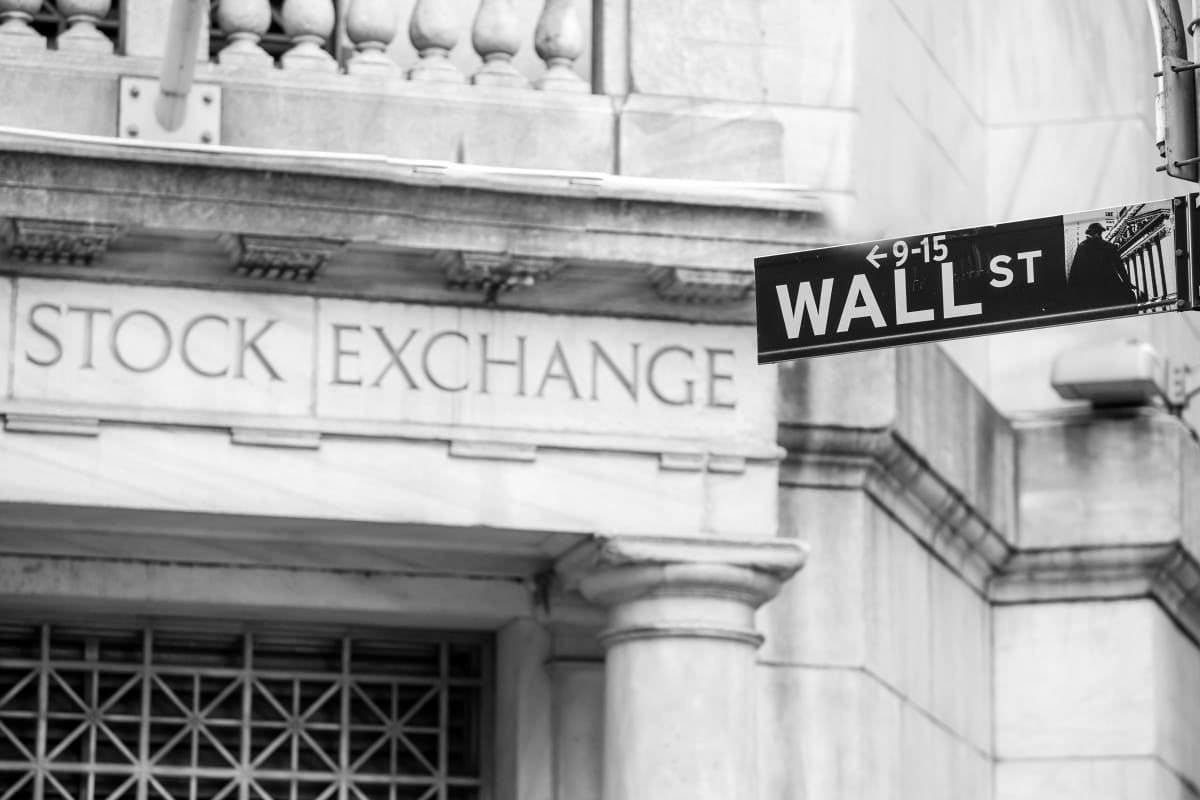

Stock Exchange: A Beginner's Guide
Stock Exchange: Back in the 16th Century
The stock market originated in Europe, appearing in cities like London and Amsterdam in the 16th and 17th centuries. However, stock exchanges today barely resemble their predecessors. At that time, companies were semi-public and needed government permission to do business.
The origins of the stock exchange go back to the 16th and 17th centuries.
Later, in the 18th century, stock exchanges more akin to today's were founded in the United States, such as the famous Philadelphia Stock Exchange (PHLX), which provided stock trading and exists to this day.
At that time, the exchange was created due to the Buttonwood Agreement that was made by 24 stockbrokers and merchants from New York City. Before the official establishment of the stock exchange, brokers met without an official regulation under a buttonwood tree on Wall Street to trade stocks.
When they think about the world stock exchange, most people imagine Wall Street, shouting guys in suits, making calls and trying to catch the best option. However, times and exchanges have changed.
Flash forward to today, the system has significantly developed. Traders are guaranteed that the stocks are priced fairly. Moreover, there are stock exchanges all around the world that are interconnected electronically. This means that financial markets have become more liquid and effective.
Stock Exchange Definition
A stock exchange is an institution that provides share trading and a place where investors meet to buy or sell securities. Any stock exchange works under specific regulations that control exchange players and market operations. Stock exchanges also have specific working hours.
The stock exchange is an institution that provides regulated share trading.
Basically, the stock exchange is a secondary market. The primary market is where a company issues its stock for the purposes of attracting additional funding, which the company can then use to achieve its operational goals.
After the company issues stock, people can either buy or sell it (primary market buyers). These people meet on a stock exchange, which acts as a platform for fair and regulated transactions.
Nowadays, the world stock market operates via a network of stock exchanges connected electronically, although exchanges with a physical trading floor still exist.
What Are the Functions of a Stock Exchange?
Stock exchanges' main function is clear, but they have some additional roles that are not as visible:
- Secondary market. It's the leading function of any stock exchange. Any stock exchange serves as a secondary market for the stocks a company issues. Holders and buyers of shares meet on the platform to perform regulated operations with securities.
- Economic health. The stock exchange also serves as a barometer of economic health. The stock market is used by analysts to predict the direction of many financial markets. For example, when the stock market rises, it's a sign of relief and investors' willingness to invest in risky assets.
- Companies' reliability. An exchange also determines the reliability of the company whose shares are listed because there are criteria the company should meet to be traded on a stock exchange.
- Safe transactions. Any stock exchange has a regulator that controls its operation.
- Funds' mobility. An exchange is a place where individual traders and big players such as hedge funds and online brokers meet. You never know who's buying or selling stocks.
How Stocks Are Traded
There are two terms that should be highlighted here: primary markets and secondary markets. The primary market refers to when securities are issued via an initial public offering (IPO). The shares are offered to an initial set of public shareholders.
The secondary market is what we call the stock market. It's the market where investors and traders can trade shocks without including the issuing company. Because investors don't interact with the company that directly placed the securities, stock exchanges serve as a connector, or a platform, that allows buyers and sellers to fulfil their needs.
The secondary market is the stock market, where investors and traders can trade stocks without including the issuing company.
To deal with stocks in the stock exchange, you need to apply to a broker that will represent your interests.
How Stock Prices Are Set
The most important issue for traders is price. So, how is the stock price determined? The cost of a stock depends on the principle of supply and demand. When a company is listed on a stock exchange, there are buyers and sellers of its stock. They determine the average price that meets the desired level at which a seller wants to sell the stock and the level at which a buyer is ready to purchase it. The exchange just tracks the order flows for each stock.
Stock Market Players
The stock market is formed by traders and other players that significantly impact the market's operations. Look at the list below:
- Companies. Companies or their management issue stocks to create a product for the stock market.
- Brokers. These are firms that represent trader or investor interests in the big market. It's much easier to enter the world stock market via a broker who acts as your representative.
- The US Securities Exchange Commission (SEC). This is the regulator that monitors pricing fairness, insider trading and other regulations that can affect market participants.
- Online investors. Although online brokers represent investors, they're indirect market players.
- Financial advisers. Not all investors have enough skills to work with stocks, so they apply to financial advisers who manage their money.
- Funds. Here we can mention mutual, hedge and pension funds. These are organisations that operate others' investments.
Bulls and Bears in the Stock Exchange

These trends are the basics of any financial market, and knowing them will help you invest in the stock market or any other market, like forex, for example.
Bulls and bears are the common names for buyers and sellers, respectively. A bull raises the price on its horns. A bear pulls the price down with its paws.
The price is a sort of agreement between bulls and bears.
Bulls and bears determine the price of an asset is a sort of agreement between bulls and bears. If you hear bulls prevail in the market, it means prices are moving up. If bears take the floor, prices are declining.
Types of Stock Market Exchanges
There are different types of stock exchanges that serve different aims.
Auction Exchange
It's the type of exchange where buyers and sellers offer their prices for a share, like at an auction. The current price refers to the highest price that a buyer is ready to submit. The lowest price is the one that refers to the minimum a seller is prepared to accept. Trades are executed as soon as the prices match.
One example of this is the New York Stock Exchange. In such a system, investors communicate on the physical trading floor.
Electronic Exchange
Electronic exchanges have almost entirely replaced auction exchanges. Such exchanges allow investors to make operations remotely. They're also faster. An example of this is the Nasdaq Stock Exchange.
Electronic Communication Networks (ECNs)
ECNs are an example of an alternative trading system. ECNs directly connect buyers and sellers. ECNs significantly reduce transaction costs. However, ECNs are mostly used by institutional investors.
Over-the-Counter Exchanges
Over-the-counter (OTC) exchanges or bulletin boards are places where the shares that didn't meet the stricter requirements of leading exchanges are listed. As such, these shares are riskier. OTC requirements may include the period the company operates, which confirms its reliability.
How to Become Listed
To have comprehensive knowledge of the stock exchange, check the steps a company goes through to list its stocks on the exchange. Whether you own Apple or a smaller company, you'll have to follow the following steps to become public:
- Step 1. An initial public offering, or IPO, is the primary term you should know when talking about the exchange listing. The first step is to apply for the public offering filing registration documents. They vary by country. In the US, for example, you'll have to file Form S-1 with the Securities and Exchange Commission.
- Step 2. It would be better to mention this step ahead of the first one. You'll need to check the requirements of a particular stock exchange. Any significant stock exchange will review the company's reliability. The conditions may include the initial share price, the number of shares, the stock's total market value and even the number of shareholders.
- Step 3. The different requirements include the first one we mentioned, the listing process, and the company has to fulfil board requirements.
- Step 4. As soon as the company meets the stock exchange's rules, its stock gets a ticker symbol. The symbol should correlate with the company's name. Moreover, it can't duplicate an existing ticker. It's recommended to use a short name that users can easily remember and read.
- Step 5. The next important point is to choose an underwriter, which is a company that serves as an intermediary between the enterprise and investors who want to trade its stocks.
- Step 6. The final step is to apply to the stock exchange.
What to Trade on the Stock Exchange
Trading on the stock exchange includes a wide range of assets. They're listed below:
Stocks
The first option is stocks. We have already explained the process for a company to get listed. Some companies are listed on several stock exchanges. You can choose the one that suits you the most.
There is a wide range of companies whose stocks you can trade. Choose the best ones wisely. For that, you'll need to be equipped with fundamental and technical analysis.
Indices
Another option is indices. Put simply, an index is a set of companies' stocks that serves as a barometer of market sentiment. Usually, indices are related to a specific industry. So, to determine the health of that industry, you can follow the index's performance. Indices have many pros. They prevent you from having to make a tough choice of which stocks to trade. It's somewhat similar to a mutual fund.
ETFs
Some exchanges offer ETF trading. ETF stands for exchange-traded funds. ETF is a set of securities (for instance, stocks) which track a particular index. ETFs are similar to mutual funds. Still, they are listed on stock exchanges and traded like common stocks.
Bonds
It's also possible to trade a company's bonds. These are less risky assets than stocks.

How to Choose Stocks and Start Trading on the Stock Exchange
To select stocks that are more likely to lead to a successful strategy, you should combine fundamental and technical analysis. Fundamental analysis includes the company's earnings reporting, management news, an evaluation of the industry's health, etc. The technical analysis is based on indicators and patterns.
As soon as you identify the stocks you want to trade, you should apply to an online broker or adviser who will represent your interests on the stock exchange.

What Are the World's Leading Stock Exchanges?
Below is a list of the leading stock exchanges. The significant difference between them is the size of the companies listed on them.
NYSE
We'll start with the New York Stock Exchange. It's the largest exchange regarding market capitalisation. The NYSE was launched in 1792 and now contains mostly stocks of large- and medium-sized enterprises. The exchange offers a wide variety of financial products and services. The volume of corporate stocks and other securities traded on the NYSE daily amounts to 9.3 million.
Nasdaq
If we look at market capitalisation as the leading factor, the Nasdaq Stock Exchange is second after the NYSE. At the same time, it's relatively young. Nasdaq was established in 1971. This exchange is focused on tech- and growth-oriented companies, and the trading process is automated. Such enormous blue-chip enterprises as Apple, Microsoft and Amazon are listed on the Nasdaq.
Although we imagine a stock exchange where traders shout to try to get the best offer, the Nasdaq doesn't have a physical location. If you're familiar with the stock market, you've heard about the Nasdaq 100 and Nasdaq Composite. These are the exchange's unique indices.
TSE
Stock exchanges exist beyond the United States and Europe. The Tokyo Stock Exchange is the biggest exchange in Japan. It was founded in 1878, and around 2000 companies are traded on it. Although the exchange doesn't have its own index, the well-known Nikkei 225 index includes some of the largest Japanese companies listed on the Tokyo Stock Exchange.
LSE
In the beginning, we mentioned that a prototype of the modern stock exchange existed in London, which probably warrants a mention of the London Stock Exchange. It's one of the five leading stock markets that we can call the most international among other stock exchanges as almost 3,000 businesses from around the world trade on it and its affiliated exchanges. The well-known FTSE 100 index combines the stocks of 100 firms listed on the LSE.
SSE
China is one of the world's leading economies. It's not surprising that the country also has stock exchanges, the largest of which is the Shanghai Stock Exchange. It's one of the newest platforms. The SSE was created in 1990 and features over 1,500 companies. The Shanghai Stock Exchange serves as a stock, bond, derivative and fund trading platform. The exchange mostly includes former state-owned companies such as commercial banks and insurance companies.
Benefits and Limitations of Stock Exchanges
A stock exchange is a convenient way to trade stocks, but it has limitations.
|
Benefits |
Limitations |
|
Convenience. Imagine there were no stock exchanges. Where would you go to sell your stocks? You would have to call your friends, neighbours and family members to offer them shares. |
Risks. If you make a poor analysis, you risk losing your money. The stock market is one of the most volatile. Price changes significantly over a short period, so if you fail to predict a stock's performance correctly, the risks of a loss will surge. |
|
Reliability. Exchanges provide transparency for investors because issuers must submit financial statements and comply with specific requirements to be included in the stock exchange. Each exchange creates its own rules for enterprises. |
Time. Before investing in the stock market, you should conduct a comprehensive analysis. If you're not a professional, you'll spend a lot of time determining if a stock's price will rise in the future. |
|
High benefit. The stock market sees a high turnover. |
Competition. Although the times when investors shouted on a stock exchange floor are in the past, competition still exists. |
|
Speed. A stock exchange allows you to buy/sell stocks whenever you want. The stock market provides high liquidity. |
Stock Market Crashes: Avoid Them or Take Advantage?
The stock market is highly volatile. That's why market crashes happen often. It seems the market crisis is an adverse event for investors. Nevertheless, it's always possible to take advantage of the situation. We'll teach you how to do it.
Market Crash: Definition
A market crash is an unexpected plunge in stock prices. The main reason for this event is the panic caused by economic or political circumstances, and there have been many stock market crashes.
An event is considered a crash if the stock market index declines by at least 10%.
Examples
Let's consider some examples that will fully illustrate the process of a crash.
The most famous example was Black Monday on 19 October 1987. That's when 23 world markets experienced a fall of over 10%. Hong Kong lost more than 45%, the record drop among suffering countries. Out of 23 markets, 19 lost over 20% of their value.
Among the reasons for the market disaster could have been American monetary and trade agreements that led to the US dollar's depreciation. Later, trading models that were driven by computer programmes followed investor panic, which led to an enormous plunge.
Another example relates to the recent market shock: the unprecedented crisis of 2020. In the last week of February 2020, the stock market experienced the most massive weekly plunge since the financial crisis of 2007-2008. At that time, the FTSE 100 dropped 13%, the DJIA and S&P 500 indices declined by 11%-12%. The reason for the crash was the major public health threat around the world posed by the coronavirus.
The date of 9 March 2020 is known as Black Monday. Stocks dropped because of the oil price war between Russia and Saudi Arabia. Leading European indices decreased by around 8%, while the S&P 500 suffered a 7.60% loss.
Stocks declined sharply for the third day in a month on 12 March. The DJIA dropped 9.99%, which was the biggest daily fall since the Black Monday of 1987. A repeat of the dramatic fall happened fast, with the DJIA losing 12.93% and the S&P 500 index falling by 11.98% on 16 March.
At first, it seemed there were no chances for recovery, but stock indices surged and reached pre-crisis levels.
What Could Investors Do?
Although it's nearly impossible to predict a stock market crash, investors have a chance to during one. A significant price decline is an opportunity to enter the market at the right level. Any market is cyclical: what goes up must come down, so traders can enter the market after a crash happens.
However, it's crucial to determine the perfect point when the market has reached its limits. To do so, investors can wait until the market confirms a reversal using technical analysis that includes indicators and patterns.
Moreover, it's vital to evaluate market sentiment by reading the news. Doing so can help prevent dramatic losses during a market crash. Global economic or political events can cause a drop, so as soon as you're aware of the market situation, you can predict investor sentiment.
Conclusion
Stock exchanges have many benefits, but they come with their limitations, too. One of them is the inability to sell stocks until you have them. It makes a difference with CFD trading, which allows you to buy and sell shares without ownership. CFD stock trading provides an option to enter the market any time you want.
In general, it doesn't differ from stock exchange trading. To predict a stock's direction, you should also combine fundamental and technical analysis. But please note that trading CFDs with leverage can be risky and may lead to losing all of your invested capital. If you want to practice CFD trading in a zero-risk environment, you can open a Libertex demo account. It fully resembles a real one but allows you to practice without risks to your funds.
Here are the answers to the most frequently asked questions.
FAQ
What Exactly Is the Stock Market?
The stock market is a market where buyers and sellers meet to do operations with companies' stocks in order to make money.
Do I Lose All My Money If the Stock Market Crashes?
If you partner with a reliable broker, you won't lose all your money in the event of a market crash.
What Is the Best Stock to Buy Right Now?
The value of stock changes frequently. To identify the best stock, follow market conditions. Industry or company improvements will lead to a rise in the share value.
Disclaimer: The information in this article is not intended to be and does not constitute investment advice or any other form of advice or recommendation of any sort offered or endorsed by Libertex. Past performance does not guarantee future results.
Why trade with Libertex?
- Get access to a free demo account free of charge.
- Enjoy technical support from an operator 5 days a week, from 9 a.m. to 9 p.m. (Central European Standard Time).
- Use a multiplier of up to 1:30 (for retail clients).
- Operate on a platform for any device: Libertex and MetaTrader.